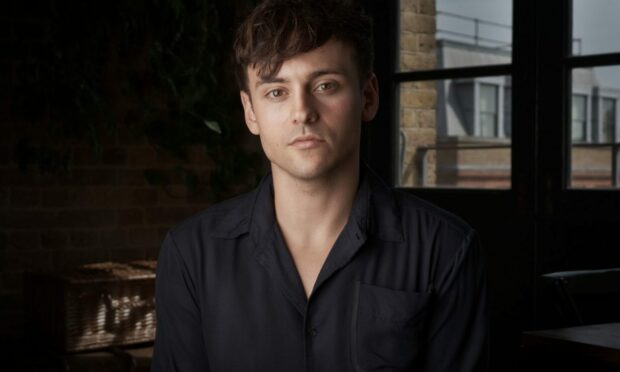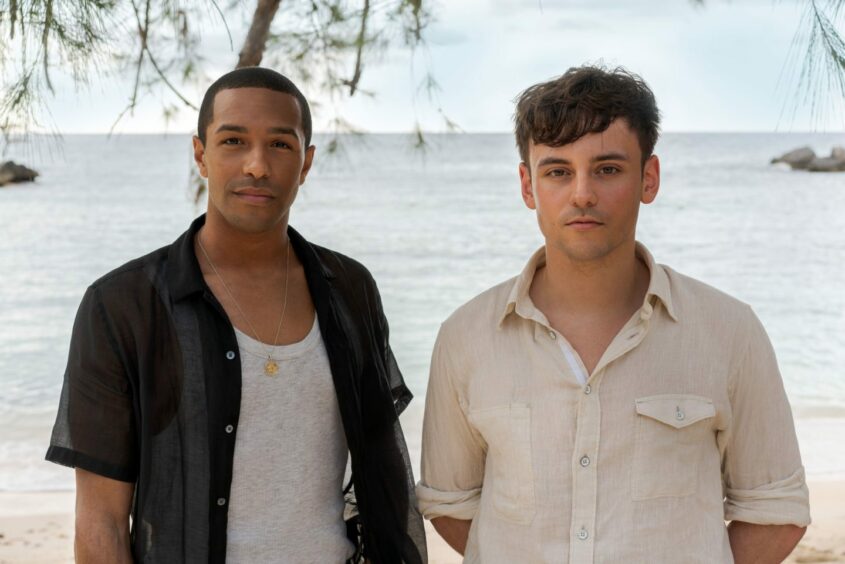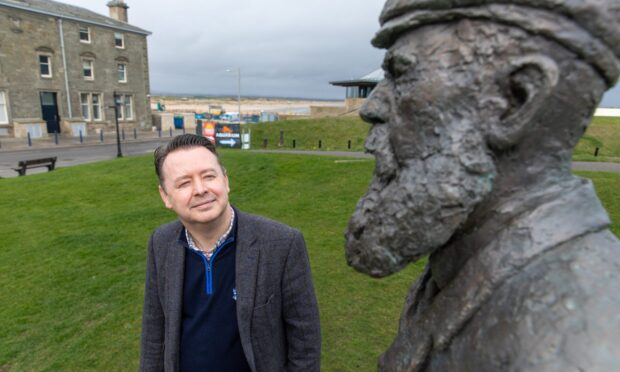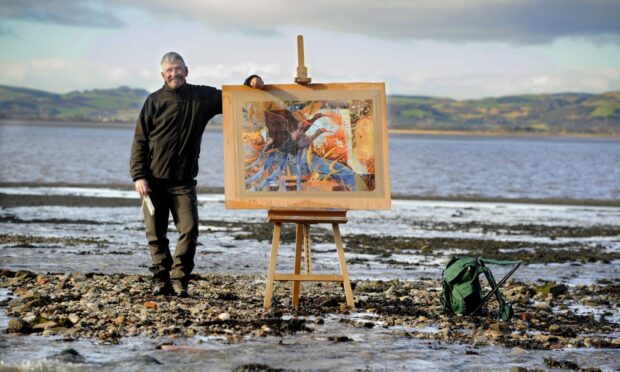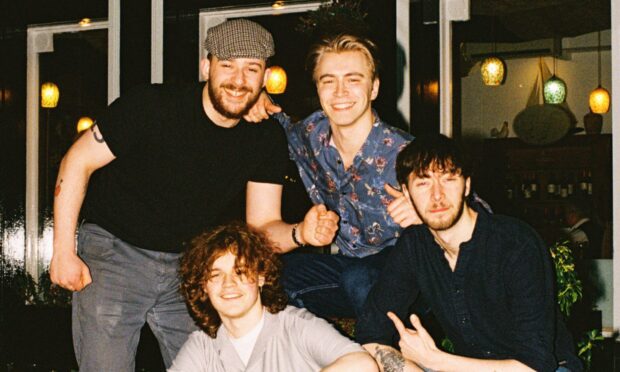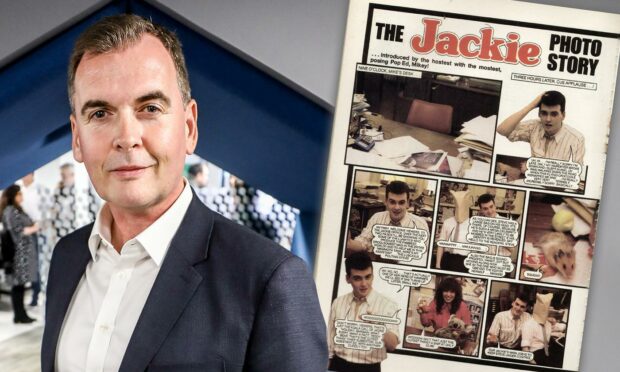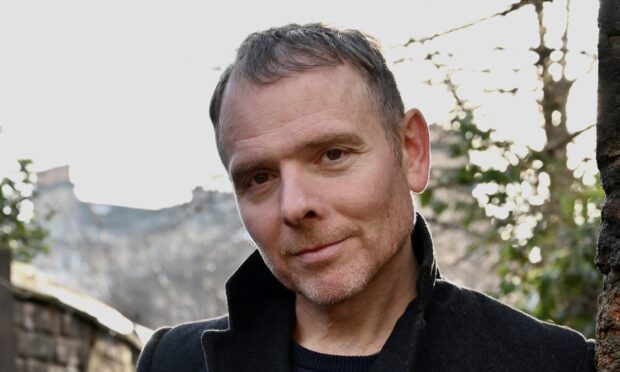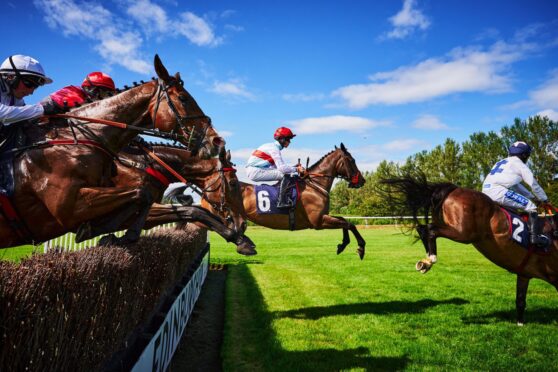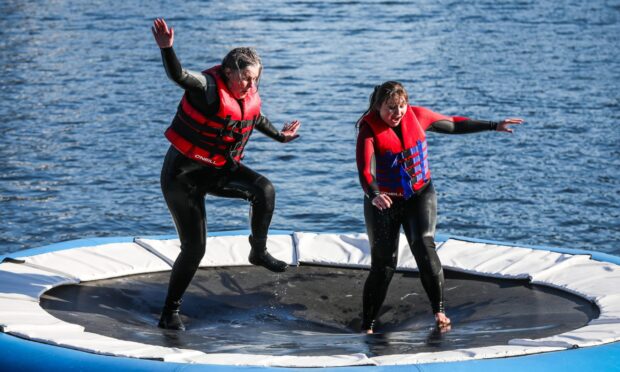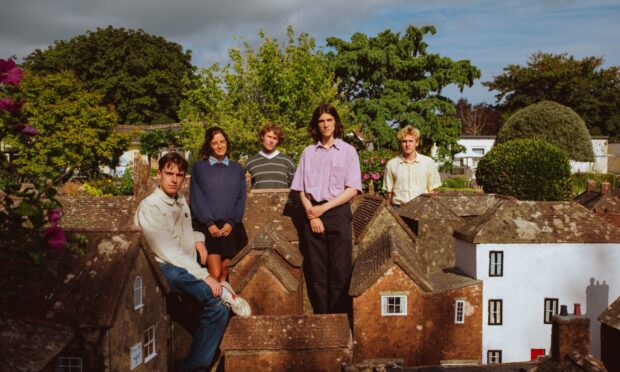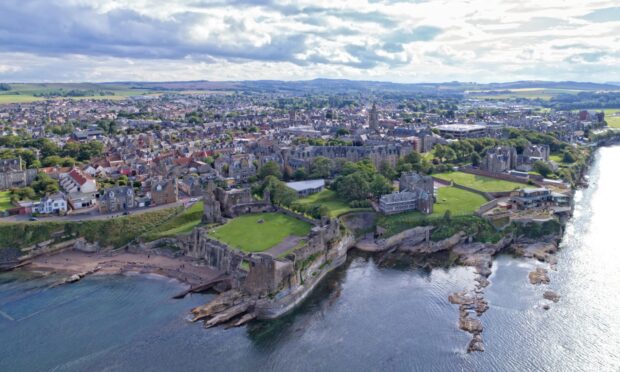Of the thousands of athletes to compete at the London 2012 Olympics, says Tom Daley, who was among their number, there were more called James than out gay people.
At this point as an 18-year-old, he wasn’t even out himself, and possibly the fact his national treasure status came first through sporting endeavour – he won bronze for diving in 2012 – made it easier when he told the nation about his sexuality soon after.
A nice, thoughtful guy
Then again, maybe if Daley had never won a medal in his life after his early public years as a prodigy, he would still have found his way to becoming a queer role model.
After all, he just seems a nice, thoughtful, hard-working young guy and proud dad, and his public presence ever since has been as much about championing equality as it has dropping 10 metres into water.
Tom Daley: Illegal to Be Me (BBC One) married both sides of this persona into an illuminating and often sadly disturbing hour of television with a purpose.
As well as both of his Olympic bronzes, Daley also has two Commonwealth golds, making him a better candidate than most to examine the relationship of nations in the just-finished Commonwealth Games with laws on equality.
Pride flags aloft
Everyone who watched last month’s opening ceremony will have seen the section where Daley and other athletes from past Games carried the final baton relay into the stadium in Birmingham, holding Pride flags in honour of those athletes who live in parts of the Commonwealth where homosexuality is illegal.
This programme showed how they got there.
As Daley pointed out at the start, 56 states participate in the Commonwealth Games, which between them contain a third of the world’s population.
In over half of these states being gay is illegal, and in many punishments are harsh, including imprisonment.
In three (the infographic shows Nigeria, Pakistan and Brunei) the death penalty still exists.
His own experience
Daley reflected on his own experience growing up in Plymouth, where he attributed his great success at a young age to the fact he felt sure he would inevitably be rejected if and when he came out.
That wasn’t the case with most of those closest to him, but as a public figure he still received plenty of online abuse.
Sadly, this pales next to what other gay athletes around the world endure.
If there was any deficiency in the show, it was the fact so many would – understandably – only speak anonymously, meaning much of the emotion had to be conveyed just by Daley’s stunned reactions.
A chilling picture
Through these, and mobile phone footage of attacks, a picture built of punishment attacks, personal and professional ostracisation and supposedly curative forced marriages.
As one who was beaten pointed out to Daley, this happened to him “just for loving.”
It was a sad portrait of what the opposite of progress looks like, and also in places an illuminating picture of how the exported attitudes of Empire forged this intolerance.
More than that it showed how major sporting events can go beyond “rainbow-washing”, in Daley’s words, to point towards another way.
His baton relay might have given one and a half billion viewers around the world pause, and perhaps even hope.
